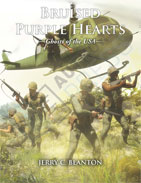
 |
Twins Matt and Max Conklin are mesmerized by the depictions of the Vietnam War broadcast from their television set in 1963. As in many families during this time, they have vastly different ideas from their World War II veteran father concerning the morality and legality of the war. Seniors in high school, they receive deferments to attend college. Though they are twins and have doubts about the feasibility of a continued American presence in Vietnam, they take very different steps in dealing with their dilemma. Max joins the ROTC to join the military as an officer after college and work as an enlisted journalist. Matt, on the other hand, pursues his interest in the arts and majors in English education. Ever the romantic, Matt marries his college sweetheart, a manipulative, self-centered woman whom he finds less and less intriguing. After college, Max goes to Vietnam as a journalist while Matt takes a draft deferment to teach in an impoverished school district. Though their lives are completely different, they find a common element in their increased dislike of the war and distrust of the government's handling of the conflict and its rhetoric to the American people.
In this historical novel, readers are transported to a turbulent time and place in American history. Juxtaposed with historical events of the sixties and seventies, the book takes readers through the civil rights movement, anti-war demonstrations, the women's liberation movement, the counterculture's infatuation with psychedelic drug use, and the exploding music scene. The protagonist, Matt, encounters people along his journey who open his already inquisitive mind to the changing opinions propagated in part by the disillusion of a war they don't understand. The author does a wonderful job of transporting readers to this era through Matt's first-person account of the changing world confronting him. For those who lived through this time, the narrative serves as a memoir of some of the most devastating aspects of the era, such as the dangers encountered by the Freedom Riders and the violent 1968 Democratic Convention in Chicago. For younger readers, the work serves as a history lesson on Vietnam and the social unrest of a generation. Blanton's narrative masterfully expresses all the angst and uncertainty of the average young person coming of age during this time.
One of the most interesting devices of the novel is the use of twin brothers, Matt and Max, to illustrate two very different perspectives concerning the war. Though Max chooses to enlist as a journalist, he discovers that he is expected to write not the truth but propaganda concerning the war. However, having decided to do what is necessary to avoid the draft, Matt seeks the deferments offered to those privileged enough to attend college. These two different approaches to the war provide a well-balanced view of the country's struggle to come to terms with the increasingly hostile view of the war in an environment of unrest. Matt, creative and intuitive, discovers his unique gift of conversing with spirits. Whether his visitations are from friends or the celebrities he admires, such as Jimi Hendrix or Martin Luther King, Jr., each serves to bring an aspect of humanity to the individual as each spirit requests to be remembered. This is exactly what the author accomplishes in this work: a remembrance of what the country was like during the Vietnam Era. Whether readers find a narrative that serves as a memoir of the sixties and seventies or are seeking an honest look at the struggles of a generation that questioned the conclusions of a government proven to not be forthcoming with the truth, this is a unique and honest addition to the many books on the subject.
RECOMMENDED by the US Review